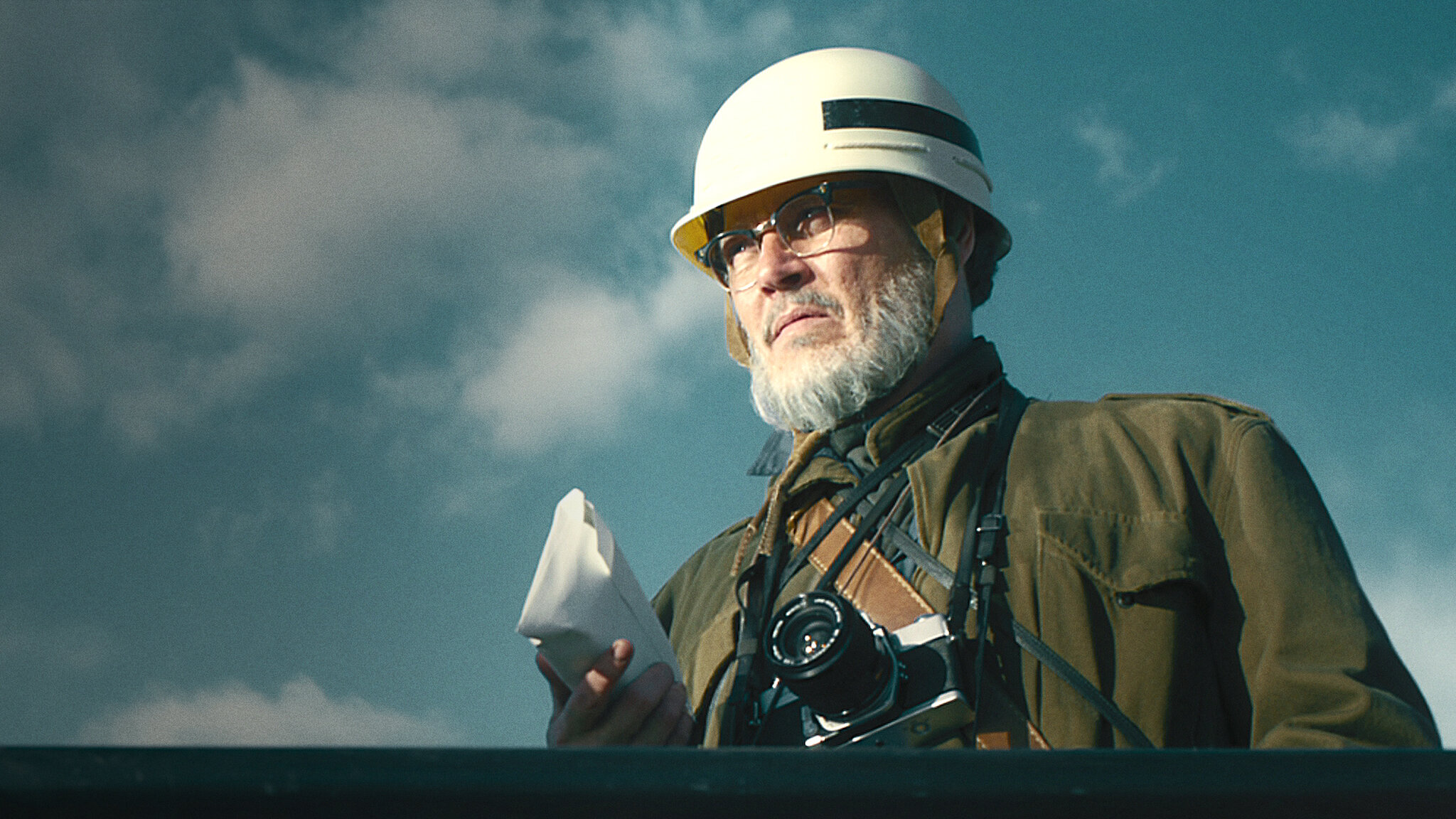The Genesis of Minamata
Released in 2021, Minamata is directed by Andrew Levitas and is based on the real-life events surrounding the environmental disaster in Minamata, Japan. The film draws its inspiration from the book Minamata by W. Eugene Smith and Aileen M. Smith, which documents the devastating effects of mercury poisoning on the local population during the mid-20th century. The Chisso Corporation, a major industrial player, dumped methylmercury into the bay, leading to a catastrophic health crisis that affected thousands, a tragedy now known as Minamata disease. This disaster, which began in the 1930s and peaked in the 1950s and 1960s, resulted in severe neurological damage, birth defects, and countless deaths, making it one of the most infamous industrial pollution incidents in history.
Johnny Depp plays W. Eugene Smith, an acclaimed American photojournalist who, alongside his wife Aileen, traveled to Minamata in 1971 to document the plight of the affected community. Depp’s portrayal of Smith is a return to form for the actor, showcasing his ability to delve deep into complex characters. The film captures Smith’s journey from a disillusioned artist to a determined advocate, using his lens to expose the corporate negligence that fueled the disaster. Alongside Depp, the cast includes Minami Hinase as Aileen Mioko Smith and Hiroyuki Sanada, adding depth to this ensemble narrative.
A Stellar Performance by Johnny Depp
Depp’s involvement in Minamata has been widely praised, with critics and fans alike noting it as one of his finest performances. After a series of high-profile legal battles and a perceived decline in his Hollywood standing, Minamata marked a significant comeback for the actor. His physical transformation—adopting Smith’s rugged appearance with a salt-and-pepper beard and intense gaze—combined with his nuanced acting, brings the character’s inner turmoil and passion to life. The film highlights Smith’s struggle with his own demons, including his battle with alcoholism, while he fights to give a voice to the voiceless victims of Minamata.
Reviews have been overwhelmingly positive, with Minamata holding an 78% approval rating on Rotten Tomatoes based on 80 reviews, and an even higher audience score of 92%. Critics have lauded Depp’s ability to infuse Smith with authenticity, with publications like The Austin Chronicle calling it “a rare return to form” for the actor. On social media platforms, fans have echoed this sentiment, with many describing the performance as Oscar-worthy and emotionally resonant. This resurgence has reignited discussions about Depp’s career trajectory, especially as he navigates his return to major film projects following his highly publicized defamation trial with Amber Heard.
The Disaster Narrative: A Cinematic Masterpiece
What sets Minamata apart as a disaster film is its departure from the typical action-packed, effects-driven spectacles. Instead, it opts for a slow-burn, character-driven approach that emphasizes the human cost of industrial greed. The film meticulously recreates the haunting visuals of a community ravaged by disease, with scenes of children suffering from congenital Minamata disease and families grappling with loss. These images, captured through Smith’s photography within the film, mirror the real-life black-and-white photos that shocked the world and pressured the Japanese government to act.
The disaster genre often thrives on spectacle, but Minamata finds its power in restraint. It avoids sensationalism, focusing instead on the quiet heroism of the victims and Smith’s relentless pursuit of justice. The film’s climax, where Smith’s photographs are published in Life magazine, serves as a cathartic moment, symbolizing a victory for awareness over corporate denial. This narrative choice has led some to argue that Minamata transcends the disaster genre, aligning it with socially conscious dramas.
Availability on Netflix
As of June 2025, Minamata is available to stream on Netflix, making it accessible to a global audience. Its addition to the platform coincides with a surge in interest in disaster documentaries and dramas. For viewers, Minamata offers a compelling watch, enhanced by Netflix’s user-friendly interface and the ability to revisit key scenes that highlight Depp’s performance and the film’s poignant storytelling.
The film’s presence on Netflix also aligns with Depp’s recent projects, including his work on Day Drinker with Penelope Cruz, signaling a potential renaissance in his career. While some of his past collaborations have fueled speculation about his return to blockbuster cinema, Minamata showcases a different facet of his talent.
Critical Reception and Cultural Impact
Since its release, Minamata has garnered significant attention for its bold approach to a lesser-known disaster. The Hollywood Reporter hailed it as “Johnny Depp’s best performance,” while other outlets have praised its cinematography and emotional depth. The film’s release came at a time when Depp was facing intense scrutiny, yet it has been credited with helping to rehabilitate his public image. Fans have called it “inspirational” and “deeply emotional,” with some advocating for its recognition at awards ceremonies.
The cultural impact of Minamata extends beyond Depp’s performance. It serves as a stark reminder of the long-term consequences of industrial pollution, a topic that remains relevant as modern societies grapple with environmental challenges. The film has sparked discussions about corporate accountability and the role of art in activism.

Have You Seen It Yet?
For those who haven’t yet watched Minamata, the question remains: why not? Its availability on Netflix, combined with Depp’s compelling portrayal and the film’s gripping narrative, makes it a must-see. Whether you’re a fan of disaster movies, a supporter of Depp’s career, or simply interested in stories of human endurance, Minamata offers something unique. The film’s runtime is packed with moments that linger, from the haunting depictions of affected families to the triumphant publication of Smith’s work.
If you’ve seen it, you might find yourself reflecting on its themes long after the credits roll. For those yet to experience it, prepare to be moved by a story that blends cinematic excellence with a call to action. Minamata isn’t just a film—it’s a testament to the power of storytelling to illuminate the darkest corners of history.
Looking Ahead
As Johnny Depp continues to navigate his career, Minamata stands as a highlight that showcases his versatility and dedication. With rumors swirling about his potential return to the Pirates of the Caribbean franchise and ongoing projects, the actor’s future in Hollywood appears promising. Yet, it’s Minamata that may ultimately define this chapter of his legacy—a disaster film that transcends genre to become a powerful narrative of justice and resilience.
So, have you seen Minamata yet? If not, it’s waiting for you on Netflix, ready to take you on an unforgettable journey through one of history’s most poignant disasters. Stream it, share your thoughts, and join the conversation about a film that’s earning its place among the greatest of all time.




